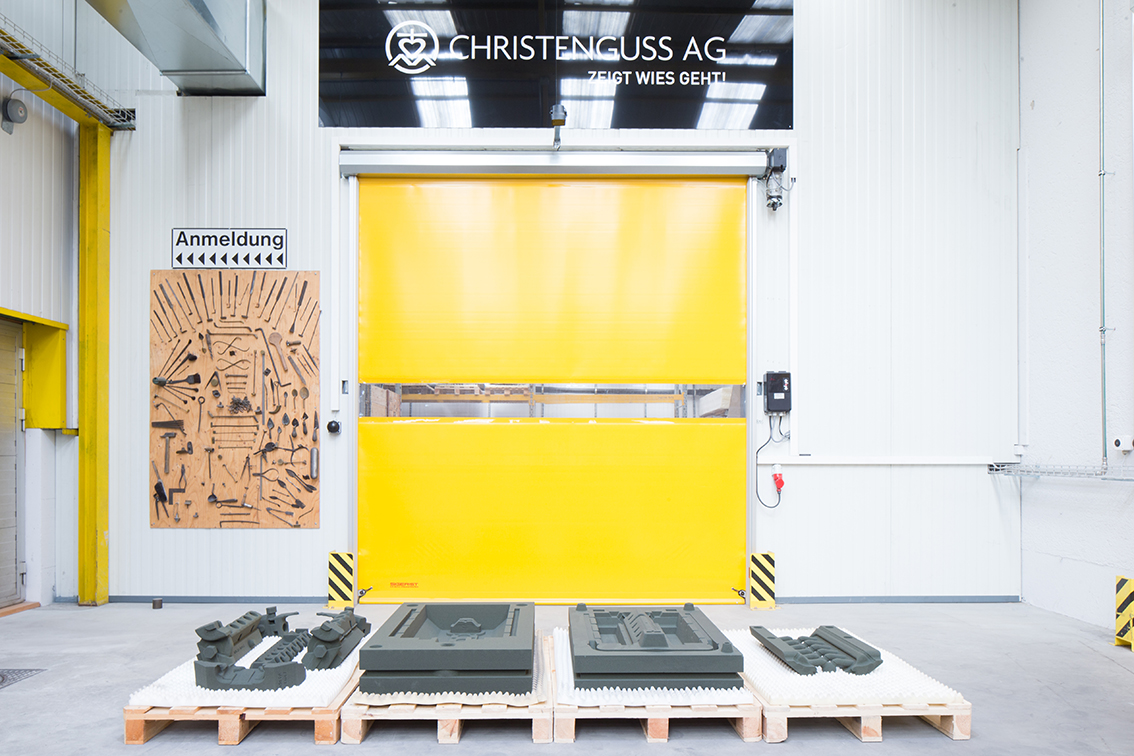Christenguss, a company from Bergdietikon in the canton of Aargau, is setting new standards in specialised casting with a new and highly innovative production process. The family company produces sand casting forms using a 3-D printing process that in future will enable them to automate the entire value chain. With this new production process, Christenguss is able to achieve the highest quality, individuality (from a batch size of one) and process reliability. The new process is also more sustainable.
Digital production from A to Z
Production of single-product batches requires absolute precision, as waste has to be kept to a minimum. Christenguss is therefore currently working with the University of Applied Sciences and Arts Northwestern Switzerland (FHNW) to develop a new digital production process that will revolutionise casting manufacturing.
The aim is to be able to control and regulate the production of each individual casting fully automatically. Each of the necessary production parameters can be digitally set, and new algorithms optimise the overall process. Upstream process planning is part of the cyber-physical system (CPS), and is implemented in the parameters of the measuring and regulation technology of the individual downstream production steps. The subsequent physical production of the casting provides the measurement data that Christenguss uses to update the upstream process planning and adjust the production process fully automatically. Each casting has its own ID code, which enables the whole production process, from planning to production to the final quality control, to be controlled and regulated fully automatically. This allows each of the production steps to be monitored at all times.
Digital production facilitates the integral quality control of each individual casting and the in-process adjustment of the production process. Christenguss is thus able to achieve the very highest quality in its production process, which easily adheres to standards such as EN 9100 (for aerospace) or the strict DNV GL standards.
A cost-effective process
Producing the moulds using 3-D printing allows positioning systems for castings to be integrated directly into the sprue. This minimises the need for special mechanical processing equipment and for fettling the castings. The cost of assembling processing equipment is currently several times the cost of the mechanical processing of the castings. These high costs can be reduced drastically by using additive production processes, which makes production of single castings for prototypes or small batches economically viable.
Lowering energy and resource consumption
The new production method is not only quick and cost-efficient, it also provides the highest quality standards while being highly sustainable. It uses fewer resources as it enables the exact number of units required to be produced. Maximum process reliability results in very high product quality, minimising waste and in turn lowering energy consumption by significantly reducing the need to remelt faulty parts. The digital geometric variation model and its infinitely adjustable additional optimisation criteria, for example “minimum number of production steps” or “minimum energy consumption”, make it possible to optimise the production process for each casting as required.
No robotisation
All this automation might lead one to assume that Christenguss will be employing robots rather than people in the future. But Florian Christen, Managing Director of the family company, sees things differently: “With this new production process, we aim to strengthen our position in order to remain among the best in our niche. I am confident that this will also enable us to create more jobs in the future.”
An innovative family company
Christenguss was founded almost 100 years ago. Today, it is an innovative speciality casting company that produces ready-to-install parts from aluminium, bronze and copper alloys for the machine, electrical and transport industries. The family company also takes care of the entire mechanical machining process, surface treatment, pressure tests and inspections executed by testing institutes. The 16-man family company is now run in the fourth generation by Florian Christen.

